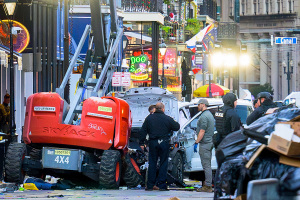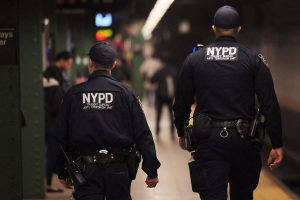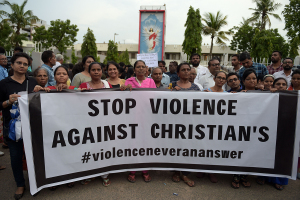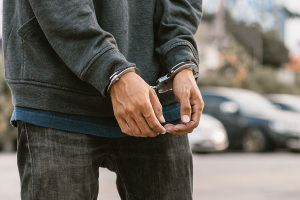Tensions in Manipur remain high as bomb blast kills 1, wounds others 10 months after violence began
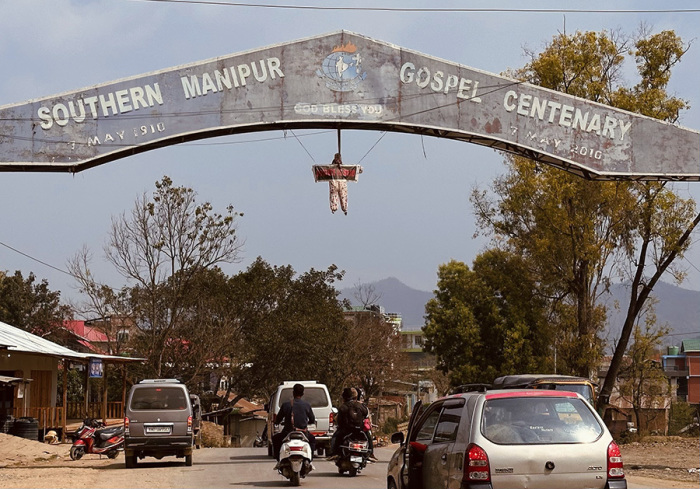
MANIPUR, India — Violence has continued to ravage Manipur, a northeastern state of India, for 10 months, with the latest incident being a bomb explosion on Friday that claimed one life and left two others injured. The ongoing turmoil, which has made life difficult for the state’s 3.6 million people, has raised serious concerns over the efficacy of both the state and central governments in maintaining peace and order.
On Friday afternoon, a bomb was detonated in Huikot Leimata village in Churachandpur district, inhabited by the Christian Kuki-Zo tribal people. The explosion resulted in the immediate death of 35-year-old Paominlun and inflicted splinter wounds on Khupthang, 36, and T.L. James, 46, E-Pao reported.
The conflict between the Kuki-Zo and the majority Meitei community, which is largely Hindu, over land rights and identity has been ongoing since May 3, 2023, resulting in at least 213 deaths, including 166 Kuki-Zo people. Around 41,000 Kuki-Zo individuals remain displaced, members of the Churachandpur-based Indigenous Tribal Leaders’ Forum told The Christian Post. They added that the violence has led to the destruction of over 7,000 Kuki-Zo homes and more than 350 churches.
Some Kuki-Zo women were gang-raped during the initial days of the violence.
The unrest has been significantly fueled by the activities of Arambai Tenggol, a radical Meitei group. This outfit, enjoying substantial support from the Meitei community in the valley areas, has been implicated in numerous anti-social activities, including assaults on civilians, vehicle snatching and extortion.
The violence started over a contentious state high court order asking the state government to consider extending special economic benefits and quotas to the Meiteis, which would also allow them to purchase land in Kuki-Zo territories. Currently, the affirmative action is only for the state’s tribal communities, including the Kuki-Zo. The proposal sparked protests among the tribal communities, quickly escalating into widespread violence fueled by disinformation and extremist rhetoric.
Last Wednesday, when Manipur Gov. Anusuiya Uikey was addressing the House, a mob of around 200 armed men under the banner of Arambai Tenggol attacked additional superintendent of police for the Imphal West district, Moirangthem Amit Singh, and his family, according to The Wire. The attack necessitated a special police operation to rescue Singh. The assailants also set fire to his residence, signaling a bold challenge to state authority.
On Feb. 15 in Churachandpur, a furious mob from the Kuki community set fire to the offices of the deputy commissioner and the superintendent of police, as well as the deputy commissioner’s residence, The Wire reported.
The act of arson was a response to the state administration’s disciplinary action against a Kuki-Zo police officer following the circulation of a video clip that showed him fraternizing with armed non-state actors. The Kuki-Zo community has criticized the administration for its perceived inaction against Meitei police officers in Imphal, who are alleged to have participated in attacks alongside mobs.
In the early stages of the violence, the Manipur Police faced accusations of permitting Arambai Tenggol, at times even joining Meitei mobs, to attack Kuki-Zo individuals. Currently, this radical group is positioning itself as superior to the government.
On Jan. 24, the Arambai Tenggol summoned all Meitei legislators to a meeting in the capital city of Imphal, Scroll.in reported. The gathering was attended by 37 members of the Legislative Assembly and two members of Parliament, representing a range of political parties, including the ruling Bharatiya Janata Party (BJP), Congress, and the Janata Dal (United).
Demonstrating a bold assertion of power, the leadership of Arambai Tenggol presided over the meeting while their forces, clad in military attire and wielding weapons, dominated the streets of Imphal. The Manipur Police, appearing ineffective, did not intervene, allowing the group to proceed with its agenda.
During the meeting, the legislators were pressured into supporting the militia’s demands, which were directed against the Kuki-Zo community. Tensions intensified when Meghachandra Singh, president of the Manipur Pradesh Congress Committee and a member of the Manipur Legislative Assembly, attributed the recent disturbances to the BJP-led state government and was attacked. He was then transported to a hospital to treat his injuries. Two other MLAs faced similar aggression.
Subsequently, Korounganba Khuman, the chief of Arambai Tenggol, addressed a substantial assembly in Imphal. He asserted that all lawmakers, including Chief Minister Biren Singh, had endorsed their list of demands, signaling a significant moment of influence over the state’s political landscape.
Meanwhile, in Churachandpur, nearly 100 Kuki-Zo individuals, including women and children, have succumbed to inadequate healthcare and substandard living conditions within over 100 makeshift shelters in the district, a Kuki-Zo volunteer helping displaced people told the CP.
Despite the state capital, Imphal, being less than 40 miles away, no medicine or goods have been transported to Churachandpur since the unrest began, compelling the locals to depend on supplies from Aizawl, the capital of the neighboring state of Mizoram, which is more than 220 miles away and accessible only through hilly terrain.
It has also resulted in a significant increase in inflation, affecting the prices of food and daily necessities. Furthermore, the income of nearly every household has dropped to less than half of their typical earnings, inflicting hardship on almost every individual within the Kuki-Zo community, a local journalist told the CP.
With Sunday marking 10 months since the outbreak of violence began, the government’s efforts to address the crisis have still not succeeded in reinstating peace.


















